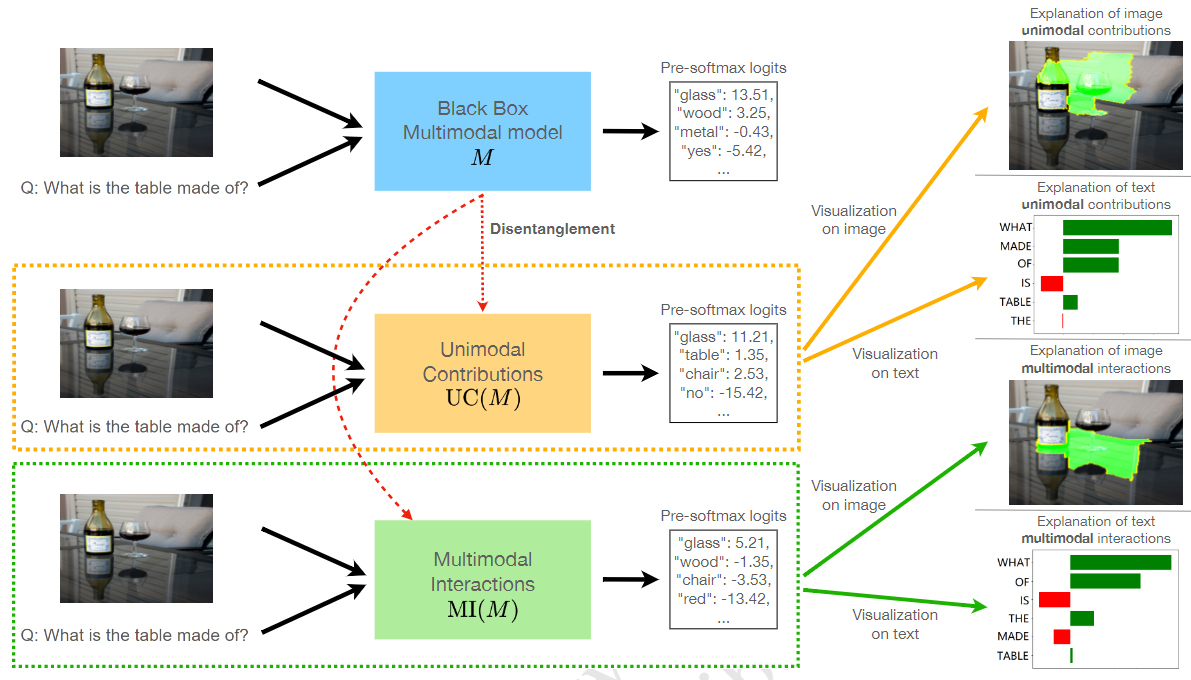Correspondences to
- Yiwei Lyu (ylyu1@cs.cmu.edu)
- Paul Pu Liang (pliang@cs.cmu.edu)
- Zihao Deng (zihaoden@andrew.cmu.edu)
- Ruslan Salakhutdinov
- Louis-Philippe Morency
DIME: Fine-grained Interpretations of Multimodal Models via Disentangled Local Explanations
Yiwei Lyu, Paul Pu Liang, Zihao Deng, Ruslan Salakhutdinov, Louis-Philippe Morency.
If you find this repository useful, please cite our paper:
Coming Soon!
The ability for a human to understand an Artificial Intelligence (AI) model’s decision-making process is critical in enabling stakeholders to visualize model behavior, perform model debugging, promote trust in AI models, and assist in collaborative human-AI decision-making. As a result, the research fields of interpretable and explainable AI have gained traction within AI communities as well as interdisciplinary scientists seeking to apply AI in their subject areas. In this paper, we focus on advancing the state-of-the-art in interpreting multimodal models - a class of machine learning methods that tackle core challenges in representing and capturing interactions between heterogeneous data sources such as images, text, audio, and time-series data. Multimodal models have proliferated numerous real-world applications across healthcare, robotics, multimedia, af- fective computing, and human-computer interaction. By performing model disentanglement into unimodal contributions (UC) and multimodal interactions (MI), our proposed approach, DIME, enables accurate and fine-grained analysis of multimodal models while main- taining generality across arbitrary modalities, model architectures, and tasks.
DIME works by first disentangling a model M (assuming it takes multimodal inputs and outputs pre-softmax logits for each classification label) into UC(M) and MI(M), then generate explanations for each of the two using visualization tools such as LIME. The resulting fine-grained explanations can help us better understand model behavior and possibly reveal undesirable model behavior.
The two notebooks are for running DIME on MDETR on CLEVR and on LXMERT on VQA respectively.
Both are designed to work with Google Colab default environment.
When running LXMERT on VQA, you also need to include the other py files as well as the lxmert folder in the working directory.

